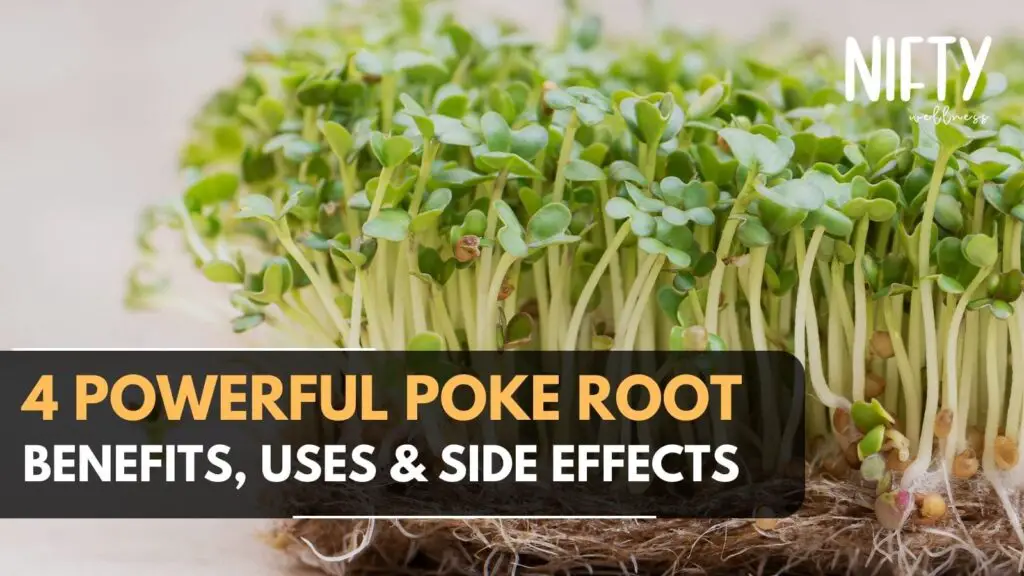In the vast landscape of herbal remedies, poke root emerges as a potent contender, pokeweed benefits rivaling elderberry: elderberry vs pokeberry. Poke root has been used as a natural remedy for many centuries, and there might be a good reason why. Today, we are going to find out together about the benefits and uses of poke root and whether our ancestors were right about its healing abilities!
This guide delves into the intricate dance of its benefits, shedding light on its medicinal uses, and draws comparisons between pokeweed vs elderberry. Join us in navigating the nuanced realm of pokeberry vs elderberry, unlocking the poke root medicinal uses, understanding the potential side effects of this herbal powerhouse, and discussing elderberry vs pokeweed.
What Is Poke Root
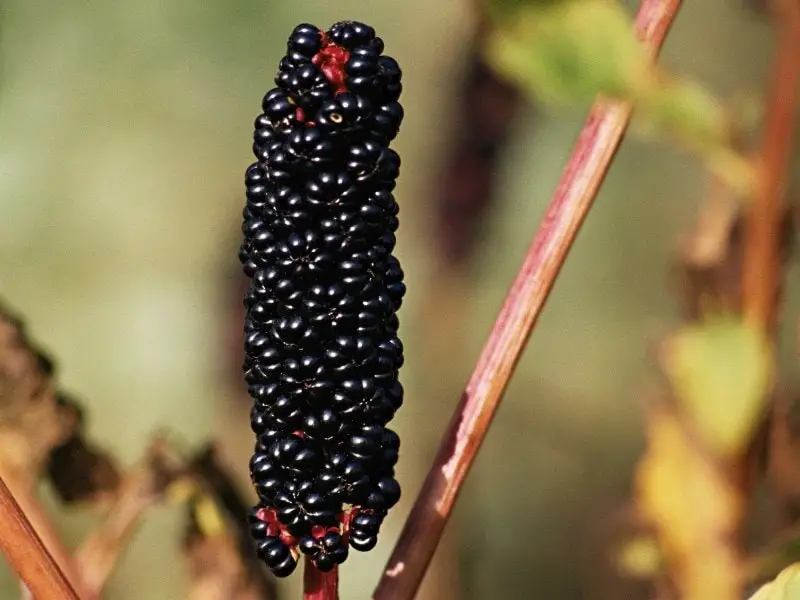
Phytolacca, commonly known as pokeweed, poke root, and inkberry, is a genus of perennial plants originating in North America, South America, and East Asia.
The plant contains phytolaccatoxin and phytolaccigenin, toxins that are poisonous to mammals if not prepared correctly.
Interesting Fact: Although it is used in folk medicine as food, it is still considered toxic, and it’s necessary to prepare it in the right way.
For example, when preparing a poke salad, a traditional dish in Southern parts of America, the plant is cooked three times in three changes of boiling water to remove the harmful components.
Check out our blog 5 Selenite Healing Properties & How To Actually Use It. Dive into the world of selenite healing properties.
Poke Root Benefits

Delving into the historical applications of poke root reveals a tapestry of uses, from cancer to skin conditions. In this exploration, we scrutinize the available information to discern the validity of these claims and uncover the potential benefits of poke root rooted in scientific understanding.
Historically, the root of pokeweed has been described as a remedy for cancer, glandular swelling, chronic rheumatism, ringworm, scabies, ulcers, and conjunctivitis.
However, is there enough evidence to support these claims? Let’s take a look!
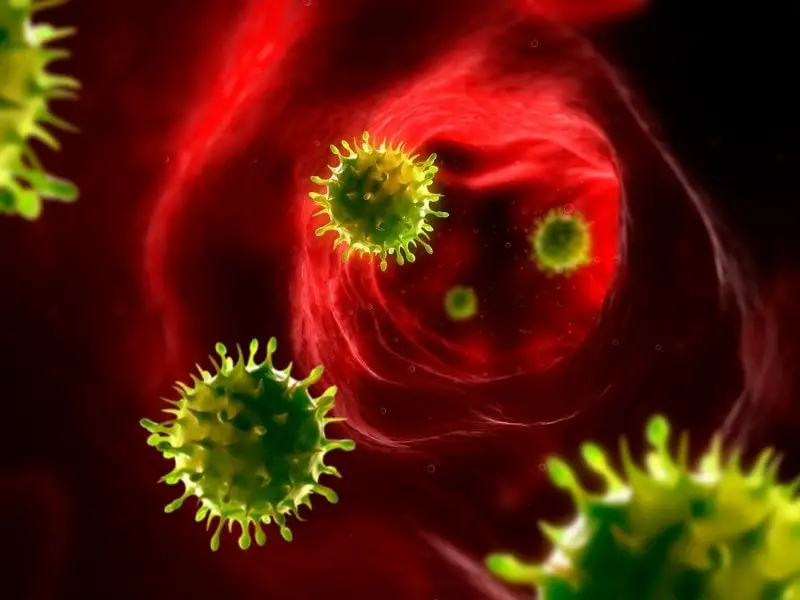

Viral infections are around us pretty much all the time, and chances are that we suffer from at least one each year. They can cause a wide range of diseases – anything from regular flu to HIV and COVID-19.
Now, we all know that we need our immune system to do the hard work to fight off these nasty viruses. And luckily for us, poke root might be able to offer some assistance here.
Research shows that proteins derived from poke root leaves and seeds show clinical potential as an antiviral agent that can be useful in the prevention and reproduction of sexually transmitted viruses, particularly HIV-1.
In addition to that, research indicates that poke root mitogen, a lectin (protein) derived from the plant, has immunostimulatory properties. Those may help induce an immune response in immunodeficient patients.
Poke root can also increase the production of immunoglobulins, antibodies used by the immune system to identify and neutralize bacteria and viruses.
Weight Loss
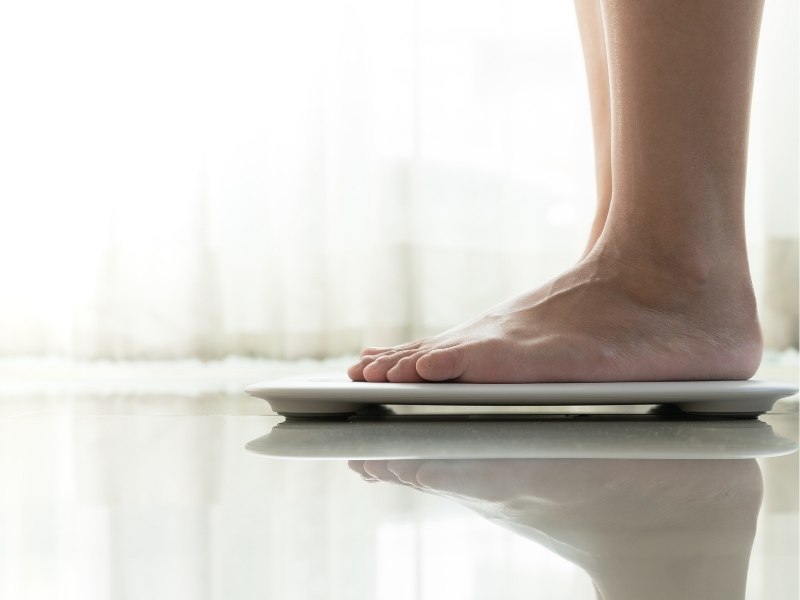
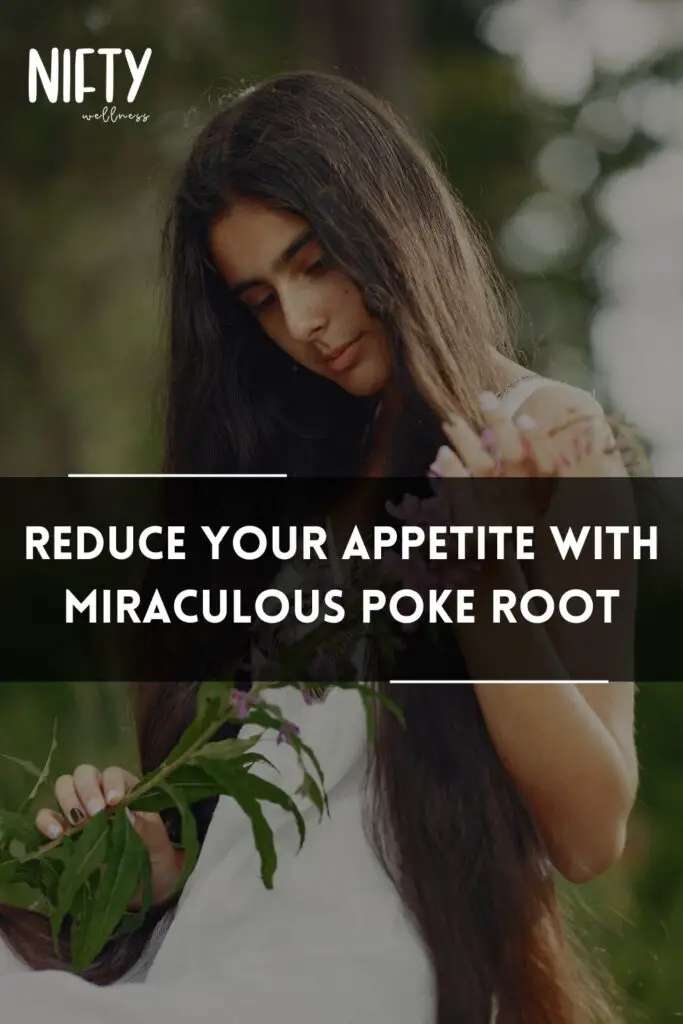
Balanced meals, healthy habits, and an active lifestyle are essential components of keeping yourself at a healthy weight.
And we won’t be telling you that we have miracle solutions to introduce you to neither. That said, we might have something that has the potential to improve your results – poke root berries!
Extracts of poke root berries are extensively used in homeopathy to treat obesity. Studies show that the berry extract demonstrated notable results in excess bodyweight reduction and lowering the cholesterol and triglyceride levels.
It does so by suppressing the appetite and increasing metabolism. Impressed already? Keep reading because the benefits of poke root don’t stop here!
Antioxidant Abilities

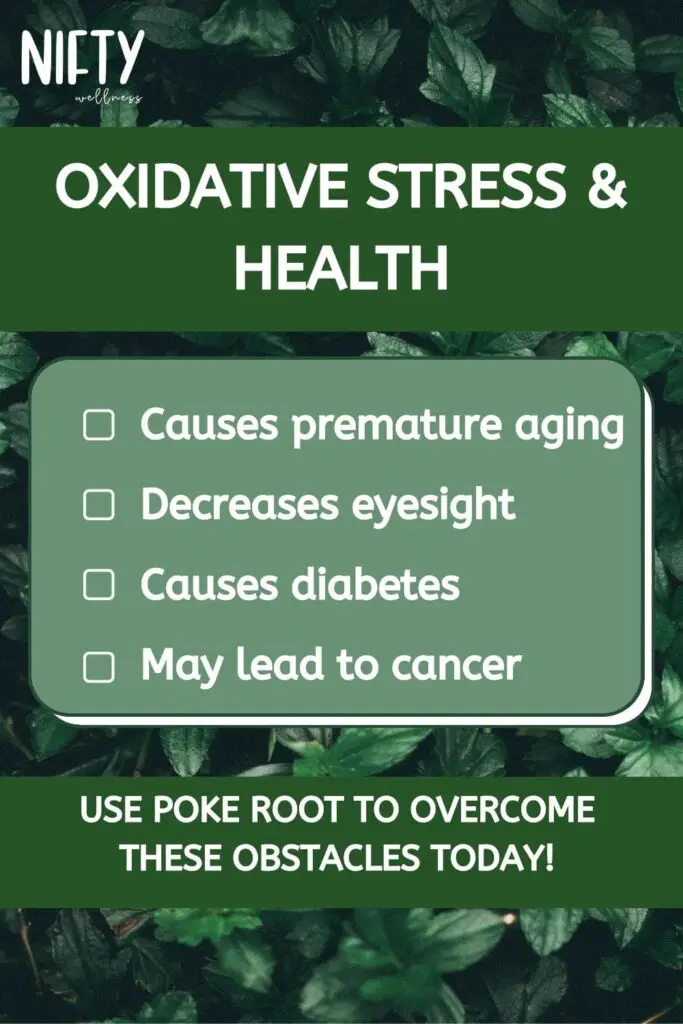
Oxidative stress lies at the root of many diseases that the world has to face. Essentially, it is an imbalance between antioxidants and free radicals in the body.
It may cause premature aging, decreased eyesight, susceptibility to infections, diabetes, heart disease, cancer, the list goes on.
Let’s just say that preventing and managing it is of vital importance!
Research has found that the extract of pokeweed seeds have shown some great antioxidant potential that can come in handy in the treatment of diseases that are linked to oxidative stress and xanthine oxidase enzyme activity.
The phenolic content in the extract is thought to be behind these antioxidant effects.
Cholesterol & Diabetes
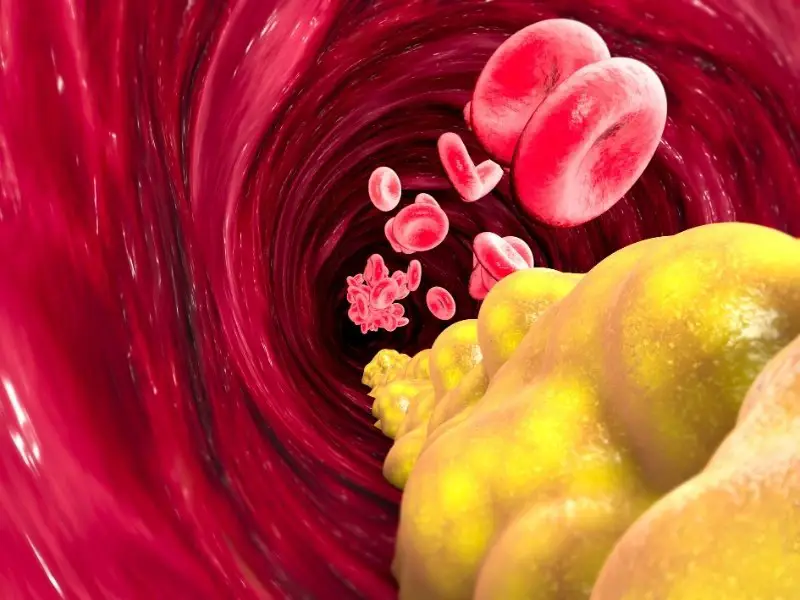
We’ve all heard at least once in our lives that we need to avoid cholesterol and sugar to keep our hearts in top condition and prevent diabetes. But you might be surprised to find out that diabetes and cholesterol levels are actually linked to each other.
According to The American Heart Association, diabetes lowers the ‘good’ cholesterol HDL levels and raises the ‘bad’ cholesterol LDL and triglyceride levels.
So where does poke root get involved here?
Glad you asked! Pokeweed seed extract has been revealed to contain oleic acid, which is a nutritionally important fatty acid. It may help lower the bad cholesterol and possibly increase the good cholesterol.
Oleic acid can also encourage insulin resistance and reduce inflammation. This is extremely important because it not only helps you feel better but also prevent implications and lower the risk of heart disease.
Read our blog 4 Proven Teasel Root Benefits For Your Health & What Is It. Dive into the world of teasel root benefits – a herbal treasure for your well-being.
Poke Root Uses
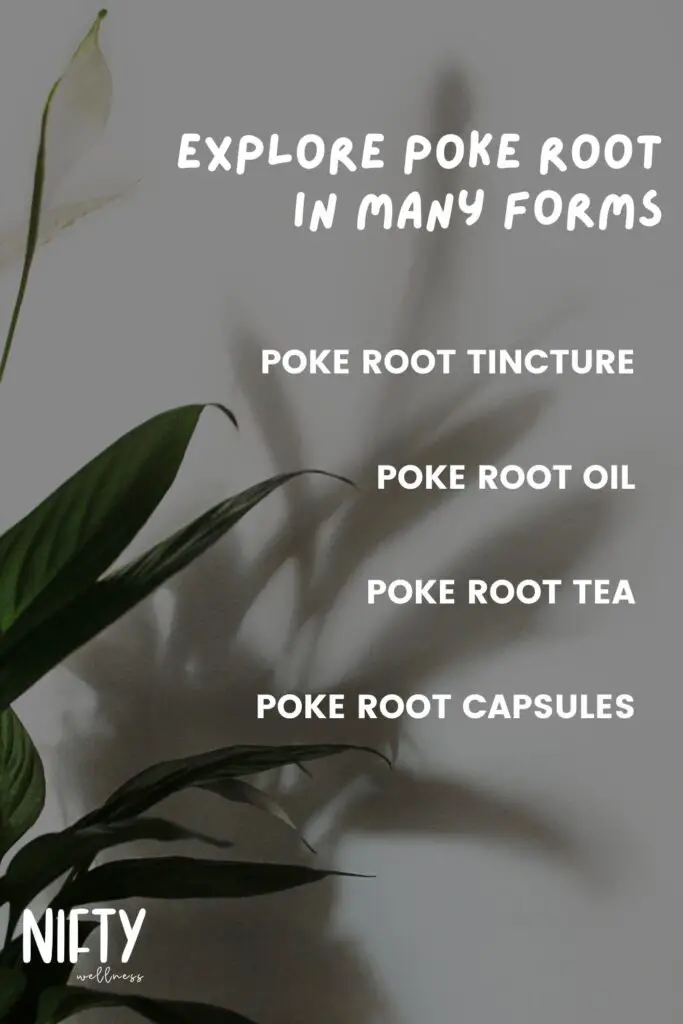
Now that we are familiar with some of the poke root’s benefits, let’s find out how to take it!
Poke root is pretty versatile and can be used in many ways:
- Poke root tincture. To make poke root tincture, alcohol is infused with poke root. You can take it by mouth or diluted with water.
- Poke root oil. Poke root oil is made by infusing herbal oil with poke root and applied topically.
- Poke root tea. Poke root tea is made by steeping dried poke root in hot water.
- Poke root capsules. Capsules can be made out of dried poke root. Keep in mind that the capsules are not regulated by the FDA.
Elderberry vs Pokeweed
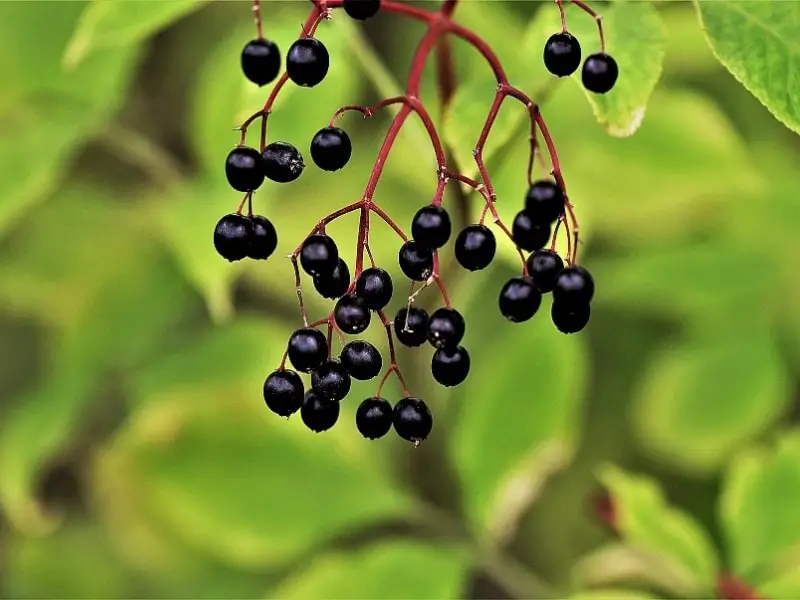
Pokeberry and elderberry share some similarities in appearance but they are not even close to being the same.
- Pokeberries have dents and they grow down the sides of the stems, while elderberries grow in clusters.
- Their origin plants are also completely different and unrelated. Pokeberry is harvested from the pokeweed plant and elderberry from the elder plant.
- Neither of the flavors are pleasant but they do differ from each other. Pokeberries are tasteless and have a slightly bitter aftertaste, while elderberries have a strong bitter taste.
Poke Root Side Effects
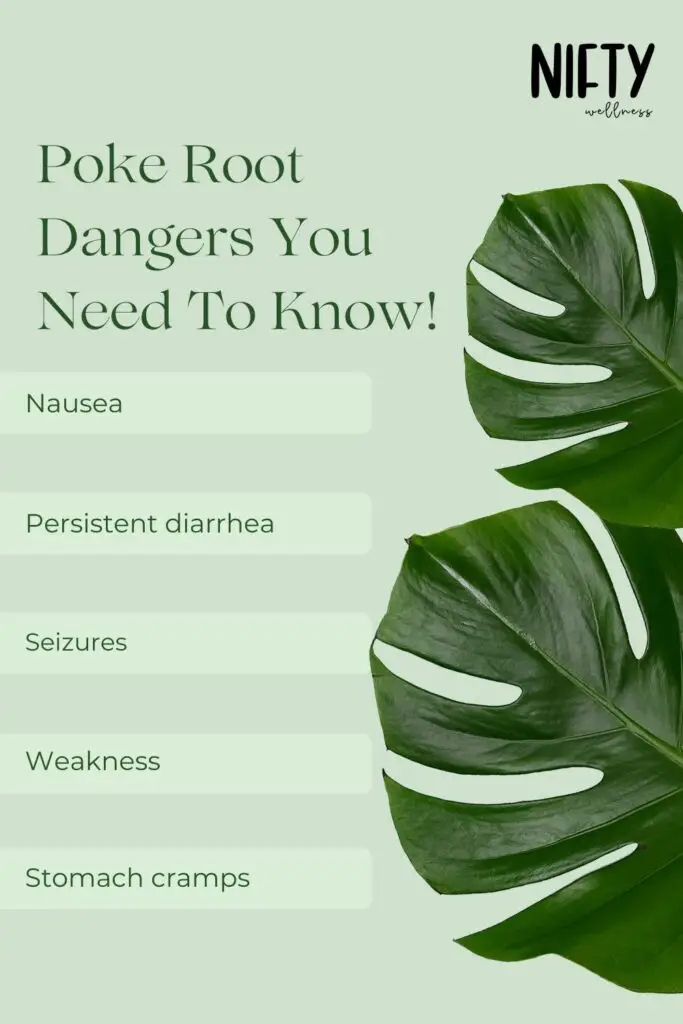
According to research, poke root can cause adverse effects such as severe hemorrhagic gastritis and gastrointestinal irritation. That is most likely because of its toxic components, which are especially high in the roots of the plant.
Consumption of poisonous parts can cause nausea, persistent diarrhea, weakness, spasms, seizures, and severe stomach cramping.
It is also advised to use gloves when touching pokeweed because the chemicals in the plant can pass through the skin.
Interesting Facts: Back in the old days, poke root was eaten to purge the body from worms.
Conclusion
Embrace the wisdom of traditional healing, and let the richness of these natural wonders enhance your well-being.
Poke root benefits have a long history of battling diseases and strengthening our bodies. And as you can see, it truly is a unique natural source of active ingredients that have proven to be beneficial.
Would you include poke root in your daily regimen? Let us know in the comments below! And if you’re looking for another beneficial root, check out our article about yucca root.
Frequently Asked Questions (FAQs)
Is poke root safe for everyone?
While poke root has historical uses in traditional medicine, it’s essential to exercise caution. The plant contains toxins that can be harmful, and improper use may lead to adverse effects. Always consult with a healthcare professional before incorporating poke root into your routine, especially if you have underlying health conditions or are pregnant. Safety first!
Can I use poke root as a substitute for pharmaceuticals?
It’s advisable to substitute pharmaceuticals with poke root with professional guidance. While it has historical uses, relying solely on it may not provide the necessary therapeutic effects. Consult a healthcare professional to ensure safe and effective integration into your health regimen. Always prioritize expert advice over self-prescription for your well-being.
Are there any culinary restrictions when using poke root?
Yes, there are culinary restrictions when using poke root. Raw or undercooked poke root is toxic and can cause severe illness. It must be properly prepared to eliminate harmful substances. Avoid using it in home cooking unless you have expertise in its safe preparation. Prioritize your well-being by understanding and respecting the culinary limitations of this potent root.
How often should I drink poke root tea?
Limit your consumption of poke root tea to occasional use. Regular or excessive intake may have adverse effects, as poke root contains potent compounds. It’s crucial to prioritize safety over frequency. If you plan to incorporate poke root tea into your routine, consult a healthcare professional to determine an appropriate and safe dosage based on your health profile.
What are sustainable harvesting practices for poke root?
Practice sustainable harvesting of poke root by taking only a tiny portion of the plant, leaving the rest to thrive and regenerate. Avoid uprooting entire plants to preserve their population. Harvest at the right time, typically in the plant’s second year. Respect local regulations and only gather from areas where it’s legally permitted. This ensures the long-term health of poke root populations and the ecosystem.
